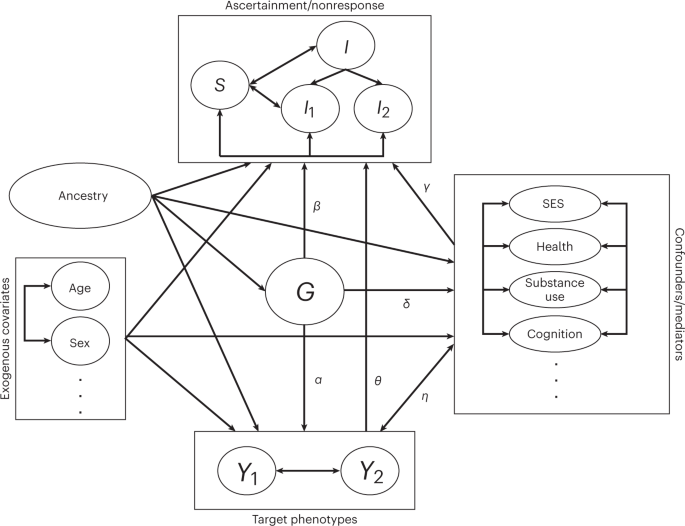2023-06-29 パデュー大学
◆遺伝子は行動の唯一の要因ではなく、環境や経験などが遺伝子が特定の結果に影響する方法や場所を変えることもあります。遺伝子が人生や運命を制御するわけではなく、むしろ人間の行動の微妙なニュアンスを理解するために遺伝子を明確化することが重要です。
◆社会科学や行動科学と遺伝子科学の交差点において、より正確で再現性のある研究が可能になる可能性があります。大規模な遺伝子データとツールを使用して社会科学を革新し、研究の信頼性と確実性を向上させることが目指されています。
<関連情報>
- https://www.purdue.edu/newsroom/releases/2023/Q2/sociogenomics-the-intricate-science-of-how-genetics-influences-sociology.html
- https://www.nature.com/articles/s41562-023-01632-7
調査票への無回答行動のパターンは系統的であり、遺伝的遺伝子座と関連している。 Patterns of item nonresponse behaviour to survey questionnaires are systematic and associated with genetic loci
Gianmarco Mignogna,Caitlin E. Carey,Robbee Wedow,Nikolas Baya,Mattia Cordioli,Nicola Pirastu,Rino Bellocco,Kathryn Fiuza Malerbi,Michel G. Nivard,Benjamin M. Neale,Raymond K. Walters & Andrea Ganna
Nature Human Behaviour Published:29 June 2023
DOI:https://doi.org/10.1038/s41562-023-01632-7

Abstract
Response to survey questionnaires is vital for social and behavioural research, and most analyses assume full and accurate response by participants. However, nonresponse is common and impedes proper interpretation and generalizability of results. We examined item nonresponse behaviour across 109 questionnaire items in the UK Biobank (N = 360,628). Phenotypic factor scores for two participant-selected nonresponse answers, ‘Prefer not to answer’ (PNA) and ‘I don’t know’ (IDK), each predicted participant nonresponse in follow-up surveys (incremental pseudo-R2 = 0.056), even when controlling for education and self-reported health (incremental pseudo-R2 = 0.046). After performing genome-wide association studies of our factors, PNA and IDK were highly genetically correlated with one another (rg = 0.73 (s.e. = 0.03)) and with education (rg,PNA = -0.51 (s.e. = 0.03); rg,IDK = -0.38 (s.e. = 0.02)), health (rg,PNA = 0.51 (s.e. = 0.03); rg,IDK = 0.49 (s.e. = 0.02)) and income (rg,PNA = –0.57 (s.e. = 0.04); rg,IDK = -0.46 (s.e. = 0.02)), with additional unique genetic associations observed for both PNA and IDK (P < 5 × 10-8). We discuss how these associations may bias studies of traits correlated with item nonresponse and demonstrate how this bias may substantially affect genome-wide association studies. While the UK Biobank data are deidentified, we further protected participant privacy by avoiding exploring non-response behaviour to single questions, assuring that no information can be used to associate results with any particular respondents.

